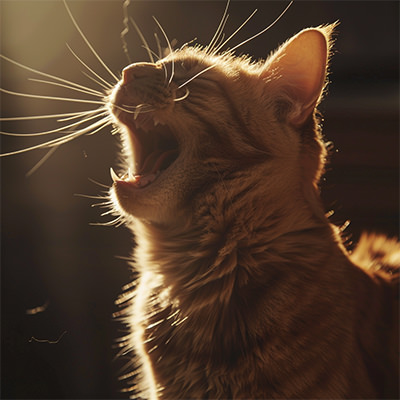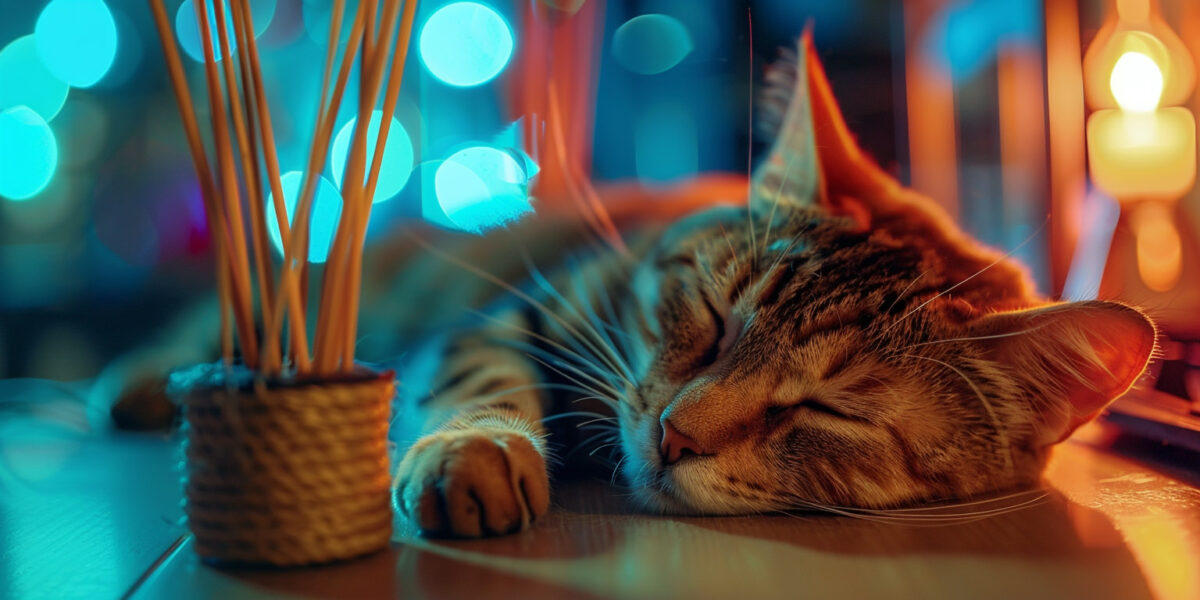Understanding Reed Diffusers: A Brief Overview
Reed diffusers have become a popular choice for many people looking to infuse their homes with pleasant scents without the use of candles or plug-in air fresheners. They’re aesthetically pleasing and provide a continuous aroma using reeds that absorb and disperse the fragrance oil. However, if you’re a cat owner, it’s crucial to understand the potential implications for your feline friends.
A reed diffuser consists of a narrow-necked bottle filled with fragrance oil and several slender reeds inserted into it. The oils travel up the reeds and are released into the air, filling the room with a gentle scent. While this might seem like an ideal option for maintaining a fresh-smelling home, it’s essential to consider whether these oils are safe for cats.
Many essential oils used in reed diffusers can be toxic to felines. For instance, oils derived from citrus, pine, and tea tree are among the most harmful to cats. When a cat comes into contact with these substances, either through inhalation or skin absorption, it can lead to severe health issues. Symptoms of toxicity might include drooling, vomiting, and even respiratory distress.
It’s also worth noting that kittens and older cats are generally more sensitive to these oils. While some might think it’s okay to use reed diffusers as long as the cat doesn’t directly interact with them, it’s important to remember that the scent molecules can still disperse throughout the entire room, posing a potential risk to your pet.
Potential Hazards of Reed Diffusers to Cats
While reed diffusers can provide a pleasant scent to your home, they are not always safe for cats. Here are some potential hazards that need to be considered:
Toxic Ingredients
Many reed diffusers contain essential oils that are toxic to cats. Oils like eucalyptus, peppermint, and ylang ylang are particularly dangerous. Even small amounts of these oils can cause severe health issues in cats.
Skin and Liver Problems
Cats have sensitive skin and a unique liver metabolism that makes them less able to process certain chemicals and oils. Exposure to toxic substances in reed diffusers can lead to skin irritation and, in severe cases, liver damage. It is especially problematic because cats groom themselves and can ingest these substances from their fur.
Breathing Issues
The vapors from reed diffusers can cause respiratory problems in cats. If your cat shows signs of wheezing, coughing, or difficulty breathing after exposure to a diffuser, it is crucial to remove the diffuser and seek veterinary care immediately.
Accidental Ingestion
Cats are naturally curious creatures and might knock over a reed diffuser, spilling its contents. Ingesting even a small amount of the liquid can be extremely harmful. Always make sure to place reed diffusers in areas that are completely out of your cat’s reach.
Signs and Symptoms of Reed Diffuser Poisoning in Cats
While reed diffusers are a popular choice for adding pleasant scents to a home, they can pose a toxic risk to cats. It’s essential to recognize the signs and symptoms of poisoning to ensure that your feline friend stays safe. Here are some key indicators to watch for:

- Drooling: One of the top signs that your cat may have been exposed to toxic content from a reed diffuser is excessive drooling. If you often find your cat drooling more than usual, it’s time to pay attention.
- Vomiting: Cats may vomit after ingesting or coming in contact with the oils from a reed diffuser. This is a clear sign that something isn’t ok and immediate action is required.
- Difficulty Breathing: Essential oils used in diffusers can be very strong, causing respiratory issues. If your cat is wheezing or having trouble breathing, keep them away from the diffuser and consult your vet.
- Lethargy: A once-active cat suddenly showing signs of fatigue and lack of energy might be suffering from exposure to toxic ingredients in the diffuser.
- Skin Irritation: If the oils come into direct contact with your cat’s skin, you may notice redness or irritation. This can occur if they knock over the diffuser and get the content on themselves.
- Loss of Appetite: If your cat starts to avoid their food or shows disinterest in their favorite treats, it could be a result of feeling unwell due to the toxic chemicals in the diffuser.
It’s crucial to keep an eye on your feline’s behavior and health. If you notice any of these symptoms, don’t skip seeking professional help. Immediately contact your veterinarian for further information on how to proceed and ensure your cat’s safety.
Safer Alternatives to Reed Diffusers for Cat Owners
While reed diffusers can be a popular choice for adding pleasant scents to your home, they may not always be the safest option for cat owners. Certain essential oils commonly used in reed diffusers can be toxic to cats through inhalation or if ingested. Fortunately, there are safer alternatives that can create a fresh and inviting atmosphere without putting your feline friends at risk.
Natural Air Fresheners
Consider using natural air fresheners that do not contain any harmful chemicals or essential oils that could be toxic to your cat. Options like baking soda, activated charcoal, and essential oil-free sprays can be effective in neutralizing odors and maintaining a pleasant scent in your home.
Beeswax or Soy Candles
If you enjoy the ambiance of candles, opt for beeswax or soy varieties. These candles typically do not contain harmful chemicals and can be a safer alternative to reed diffusers. Make sure to choose unscented or lightly scented candles made with cat-safe essential oils, avoiding scents like cinnamon, clove, pennyroyal, and wintergreen, which can be harmful to cats.
Essential Oil Diffusers
While essential oil diffusers can pose risks, you can still enjoy aromatherapy safely by using cat-safe essential oils. Always use oils at a low concentration and monitor your cat’s reaction. Safe options include lavender, chamomile, and valerian. Be sure to view the ingredient list and consult with your veterinarian before use.
Fresh Flowers and Herbs
Fresh flowers and herbs can naturally enhance your home’s scent without any risk to your cat. Safe plants include rosemary, thyme, and basil. Not only do they add a pleasant aroma, but they also bring a touch of nature into your living space.
Ventilation
Good ventilation is a simple yet effective way to keep your home smelling fresh. Regularly opening windows and using fans can help circulate air and remove odors without the need for any scented products that might be harmful to your feline companions.
By considering these safer alternatives, you can ensure a safe and pleasant environment for both you and your cats. Always be mindful of the products you bring into your home and prioritize the well-being of your furry friends.


